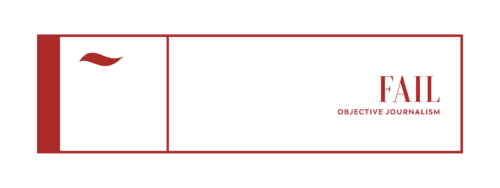News
Our religious freedoms are in question and here is who decides

June is the big decision month for the Supreme Court of the United States (SCOTUS). All the big cases that have been heard throughout the year are typically decided in the last week of June (this week). For example, last year during this week Roe V. Wade was overturned. The week usually lends itself to at least one Running of the Interns where the major news outlets have their interns physically race down the stairs of the SCOTUS building to the media area and hand them decisions.
This year there are some pretty major cases in regard to America’s religious liberties and plenty others to be decided. Which will make the interns run?
Religious rights versus gay rights: who wins?
In 303 Creative LLC v. Elenis, a case remarkably similar to the famous Colorado Bakery case, a web designer, Lorie Smith, who is an evangelical Christian, wants to expand her web design business to include services for weddings. However, she is morally opposed to same-sex marriages and would not want to make websites for same-sex weddings. In Colorado where her business is licensed and where she lives, it is against the law to operate a business in a way that discriminates against individuals on the basis of their status as LGBT.
SCOTUS will be deciding whether or not Colorado’s particular law violates the first amendment of the Constitution. Justice Gorsuch, who wrote the majority opinion which protects LGBT employees from discrimination under the “basis of sex” doctrine of the Civil Rights Act, is likely to write the opinion on this case.
Religious rights v the Postal Service: Is Amazon delivery bigger than God?
In Groff v. DeJoy, Postal Service worker Gerald Groff sued the Postal Service for denying him religious accommodation to not work on Sundays per his closely held religious beliefs. Groff had worked collaboratively with his local Postal manager to ensure he had Sundays off for his entire career. Recently when the Postal Service made an agreement with Amazon to deliver packages on Sunday, the Postal Service stopped allowing this accommodation and escalated their discipline of Groff for refusing to work on Sunday until he resigned and sued them under the Civil Rights Act.
If SCOTUS rules in favor of Groff, the standard for employers in terms of proving “undue burden” under the Civil Rights Act will be increased from its standard and the law will be more favorable to workers seeking genuinely held religious accommodations.
Is Affirmative Action actually racist?
There are two active cases on affirmative action: Students for Fair Admissions v. President and Fellows of Harvard College (Harvard) and Students for Fair Admissions v. University of North Carolina (NC). They will be decided jointly. In Harvard, Asian American students are suing the school over their policy to limit the number of students with Asian heritage or who are racially considered asian from attending their college. Harvard denies having the policy and argues that affirmative action laws allow them to consider race as long as they consider the whole of the student as part of their admissions decisions.
The students in the lawsuit had pretty significant evidence proving Harvard did have a racial quota which disallows entry from students with Asian heritage over a certain number. However, the focus of the case could be wide from totally overturning Affirmative Action to simply ruling that the actions of these particular schools break the laws of Affirmative Action.
Can federal student loans be forgiven?
In the student loan case (probably the one to make the interns run), SCOTUS will be deciding if the Biden Administration (or any administration) has the authority to forgive student loan debt without an act of Congress.
This case could come down to standing. Right now it is unclear if the states that sued the administration or the individual borrowers have proven damage.
Who gets to decide the fate of your election laws?
In Moore v. Harper, Republican lawmakers from North Carolina petitioned the Supreme Court to recognize State Legislatures as the ultimate authority over electoral map drawing and other federal election regulations per the constitution. If the Supreme Court rules in favor of the group, State courts and Supreme Courts would not be able to reject electoral maps (the subject of this particular dispute) or rule on any federal election law passed by the legislature.
However, in May the lower court (North Carolina Supreme Court) reversed their initial decision on the overrule of the legislature’s electoral maps and SCOTUS has not yet indicated if they will rule on this case or return to that lower court since the immediate issue is no longer at hand.
Is Stalking Free Speech?
Counterman v. Colorado a man who was convicted of stalking in Colorado is appealing the decision on the basis of First Amendment protections. The man, Billy Counterman, sent thousands of Facebook messages to an area musician, Coles Whalen, including telling her to “die” and other references to being dead. Counterman sent Whalen thousands of messages over several years which ranged from nice to aggressive. Counterman argues that because he was diagnosed with mental illness that his intention was not to threaten Whalen and he intended to do no physical harm and therefore his actions should be protected by the First Amendment under the “true threat” doctrine.
The case was hotly discussed among the justices who weighed the notion of “credible threat” and how that can be determined by a jury in the digital age. The decision will be an interesting one for all online behavior.
